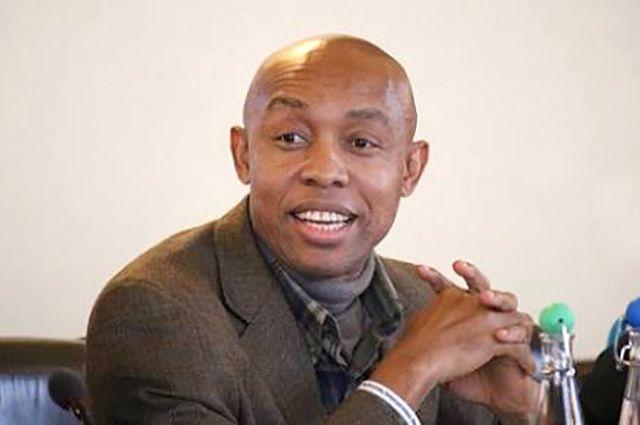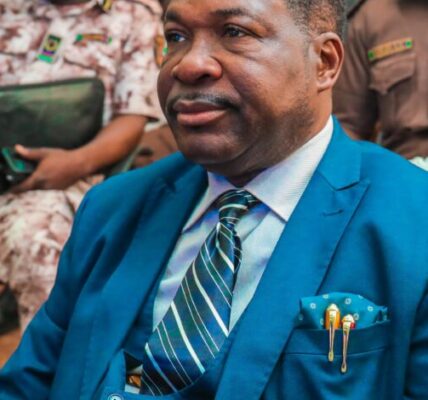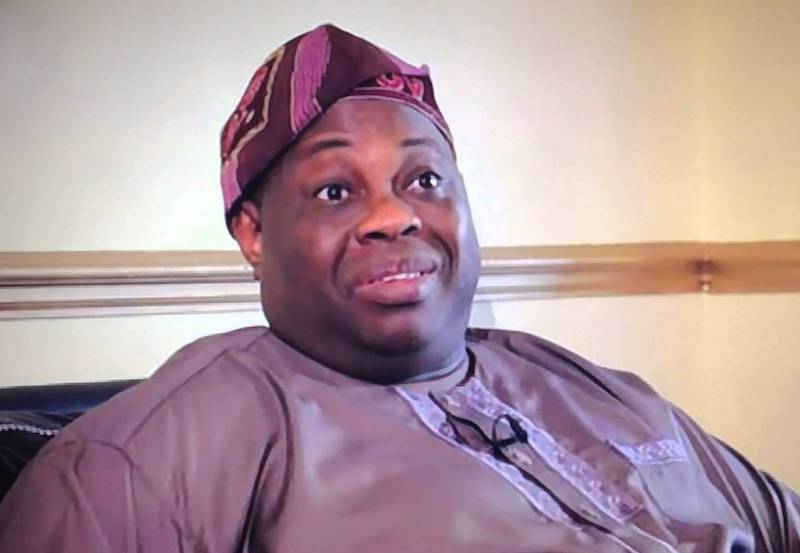Some judges have achieved a considerable degree of expertise….in displaying an immunity from contemporary knowledge and concerns.”
David Pannick, KC, Judges, p. 32 (1987)
Emmanuel Araka was 60 years old when Allison Madueke, then over 20 years his junior, a Navy Captain and military governor of Anambra State, terminated his judicial career in March 1985. At the time, Araka had been the Chief Judge of Anambra State for six years and a judge for double that. At the time also, the retirement age of judges in Nigeria was 65.
Araka’s crime was that he took the job of the judge too seriously and believed that a judge should be manifestly independent of political and executive influence.
Araka, was born in 1925 to a father from Onitsha who worked as head-teacher in a primary school in Agbor in present day Delta State, where he was born. His secondary education took him through Hope Waddel Institute in Calabar, now in Cross-River State, where one of his teachers was Eni Njoku (the famous “Teacher Nwanjoku”), who was to become the first Vice-Chancellor of University of Lagos.
Following successful studies at the Trinity College, Dublin, Araka was called to the Nigerian Bar in 1951. Over the next two decades, he built a formidable career in private practice and in politics. 12 years after becoming a lawyer, in 1963, he became Queens Counsel, the equivalent of today’s Senior Advocate of Nigeria, SAN.
Two years before that, in 1961, Chike Obi, who represented Onitsha Federal Constituency in the then House of Representatives, had to quit parliament after being convicted of the political crime of sedition. In his place, Onitsha people elected Araka to represent them in the Federal House.
The onset of military rule in 1966 interfered with Araka’s career in politics but did not entirely derail his availability for public service. At the end of the civil war, he returned to legal practice but not for long.
In 1972, Administrator of the East Central State, Dr. Ukpabi Asika, appointed Araka a judge of the High Court. When in 1976, the East Central State was split into Imo and Anambra States, Araka naturally became a judge in his home state, Anambra. Two years later, in 1978, Anthony Aniagolu, the first Chief Judge of Anambra State was appointed a Justice of the Supreme Court and Araka succeeded him in office, becoming the second Chief Judge of the State.
Around the time of Araka’s appointment as a judge in East Central State, something happened over in Lagos State which made an impression on many judges and judicial wannabes. The then military governor of Lagos State, Mobolaji Johnson, had extended an invitation to the Chief Justice of the State (as they were then known), John Idowu Conrad (JIC) Taylor, to attend a state dinner. It was reported that Chief Justice Taylor, “after reading it, endorsed a brief note to the governor at the back of the invitation card, informing him that he would be unable to attend, because the Lagos State government had several cases pending before him and it would therefore, in the circumstances, be most inappropriate for him to honour the invitation.”
In doing so, JIC Taylor didn’t just underscore the institutional value of judicial independence, he also underlined its reliance in large measure on the moral fibre of the individual judge.
This was the state of affairs when Araka arrived the Bench. 14 years later, Allison Madueke, a member of the First Regular Course at the Nigerian Defence Academy, arrived as military governor in 1984 with no hint of having received the memo. Having settled in, the military governor summoned the Chief Judge to a meeting in the government house in Enugu. Araka, demurred. Madueke later complained in his memoirs that he “had not reckoned that I was dealing with a law administrator that had a mind of his own.”
That was Araka’s crime. The invitation was renewed unsuccessfully twice, whereupon Captain Madueke “applied for his retirement.” Madueke narrates that he later met the then second-in-command to General Muhammadu Buhari, General Tunde Idiagbon, while the latter was on an official visit to Owerri and secured Idiagbon’s authorization to terminate Araka’s judicial career for being independent. In March 1985, Madueke fired Araka.
Madueke, who has just turned 80, whoops that this was “something of an earthquake in Anambra State.” It was more than that in the judiciary, where it established a norm that independence was costly. Judges re-calibrated.
Today, cavorting with the executive has become a judicial past-time. In his controversial memoirs, The Accidental Public Servant, former Minister of the Federal Capital Territory (FCT), Nasir El-Rufai, recalls that one of his first moves in that role was to visit the then Chief Judge of the Territory to secure the support of the judiciary. He exulted that thereafter, “the FCT judiciary supported us strongly throughout my tenure.”
In November 2023, the current Chief Judge of the FCT, Husseini Baba Yusuf, went one step further, corralling the FCT judiciary to visit the current Minister of the Territory, Nyesom Wike, to pledge judicial allegiance to his rule. There, the Chief Judge promenaded somewhat naked before the Minister, pleading that “[a]s a judiciary, we are part of the government and we should be able to do things that will make govt work.”
Three months later, the list of new nominees to the bench of the FCT High Court included an in-law of the Minister, Lesley Nkesi Wike, who only became a Senior Magistrate in Rivers State in 2023, appointed by the Minister when he was Governor of Rivers State.
One year earlier, in November 2022, Olukayode Ariwoola, the Chief Justice of Nigeria, had kicked up a firestorm when he traveled to Port Harcourt and at a reception hosted by the same Nyesom Wike who was then the Governor of River State, stepped into the political minefield to offer judicial support to Wike and four other governors who were at odds with their political party, the Peoples’ Democratic Party, PDP. The Chief Justice, a devout Muslim, was not under the influence of anything that he should not have consumed but, despite the febrile political season, many were willing to give him benefit of the doubt.
This past week, Chief Justice Ariwoola bettered himself. Under the guise of the traditions of the Muslim holy month of Ramadhan, he led the Nigerian judiciary supposedly to break the fast with the president. The team accompanying the Chief Justice included two of his immediate predecessors, each of whom left office under a cloud. Walter Onnoghen, one of the two, is Christian.
No one had ostensibly warned the Chief Justice about the perils of turning into a prayer warrior for politicians. At the visit, the Chief Justice took the microphone and under the guise of prayers offered to the president intoned: “May the Lord continue to bless you and your administration. Let your ship land and berth beautifully. We shall continue to pray for your administration because there are many good things in the pipeline for Nigerians.”
It is possible that Olukayode Ariwoola has always had a secret career as a clairvoyant which would equip him to know what will happen in future. What is clear is that after these lines, few people can approach the court that he presides over with any expectation of even handedness in any case in which the administration is party.
Lawyers and judges speak glibly about judicial independence, often treating it as something material, guaranteed by constitutional provisions and by large swathes of money. It is, of course, important that judges are provided for so that they have no excuses to fall prey to bribery or material importuning. Official emoluments are usually not enough competition, however, for the kinds of blandishments that can be deployed in pursuit of the favours of a senior judge.
For that reason, the job requires a lot of skill, patience, and balance. But more than any other thing, it requires persons willing to defend independence. Of all the many virtues that he surely must possess, being an Araka is not a charge that can be levied against the current occupant of the office of Chief Justice of Nigeria.
A lawyer and a teacher, Odinkalu can be reached at chidi.odinkalu@tufts.edu













